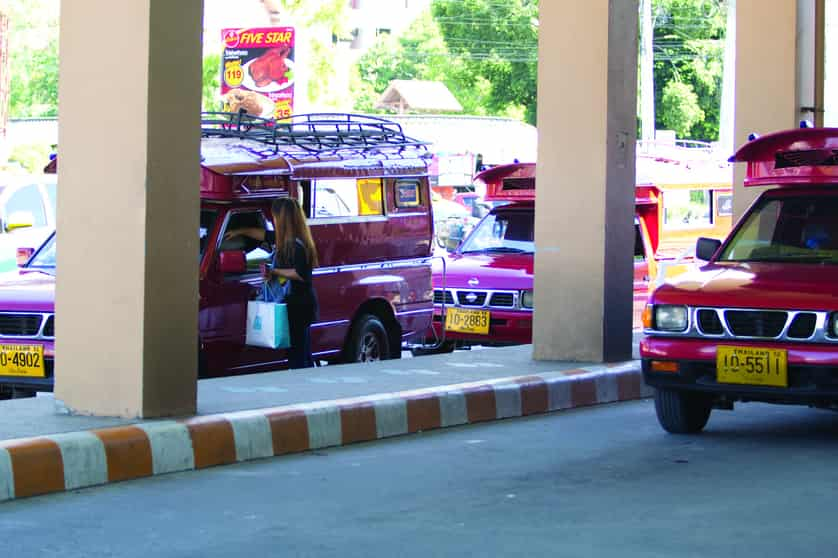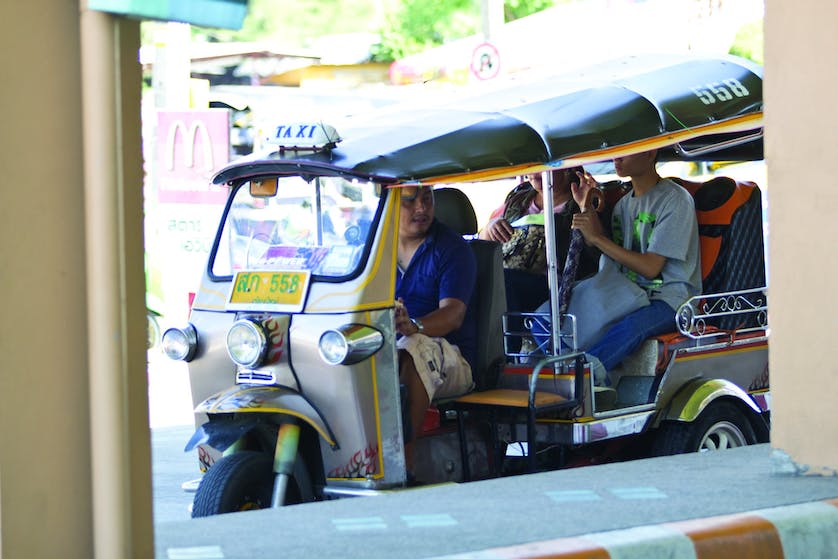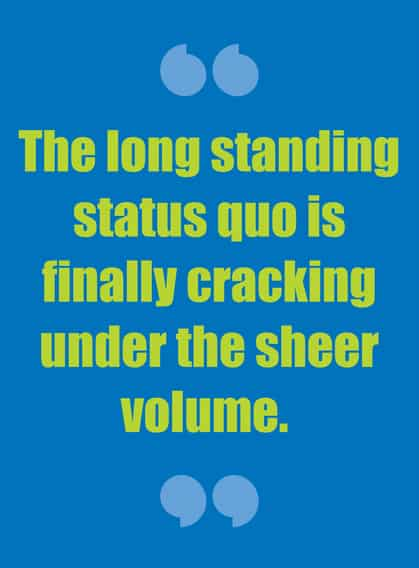With a greater-city population of around 600,000, it is well past time Chiang Mai had its own public transportation system. Having lived here for nearly 40 years I have seen buses come – and rapidly go. I have read, and been excited by, ad nauseam announcements of pending monorails, trams, trains and all sorts of plans which have never borne fruit but ended up costing taxpayers when they fail. And through it all we fall back onto unreliable songtaews, overcharging tuk tuks, elusive taxis and finally our own trusted vehicles.

Talking about our own vehicles, Chiang Mai province, with its population of just under 1.7 million, has a whopping 1.8 million registered vehicles, around 1.2 million of which are motorbikes. Though we must take into consideration all the out-of-province vehicles running our streets and of course the hundreds of thousands of old vehicles which have been run to the ground and are no longer cluttering our roads.
In addition to our own vehicles, what passes as public transportation in our city includes 2,400 red songtaews, with a further 500 colour-coded songtaews which run out-of-city route concessions: yellow for Mae Rim and Chom Thong, blue for Lamphun, white for Mae Taeng and Doi Saket, etc. While these numbers seem a tad excessive, just think that only ten years ago there were 4,000 songtaews in Chiang Mai. Thankfully, due to pressure from the Land Transport Department, many were slowly phased out in order to make room for the 350 taxis and their growing numbers as well as the just over 1,000 tuk tuks, 600 motorbike taxis, and more recently (and to the great pride of our mayor), six buses!

It is hard to make any sense of the highly convoluted hodgepodge of transportations options we have if we can’t, or don’t, drive our own vehicles. We have all heard of the notorious ‘songtaew mafia’ whose gangsta-styled antics have spawned not only hatred (check out the popular ‘Anti Red Taxi Chiang Mai’ campaign on Facebook), farfetched urban legends (remember the much repeated, but never confirmed, story of a sword-wielding line of songtaew drivers who blocked the Superhighway to stop the tuk tuks from arriving in 1994?) but also blame for their obstructionist tactics towards any implementation of public transportation. And they are just one group that has to be untangled and sorted out.
Breaking it Down
“The city’s anatomy is ancient,” said Akkapoj Wongpuengchai, Deputy Director of the Excellent Centre of Urban Study and Public Policy, Chiang Mai University Research Unit. “The 720 year old road system is not conducive for mass transit. We are also blocked by a mountain to our west which restricts the use of ring roads. Combine those factors with a lack of budget, and our only solution is to build a system linking the current vehicles and making them cohesive.”

“It is easy to blame the songtaew or tuk tuk drivers, but as a population, we need educating. We are lazy and are used to getting our way. It will be difficult to get people to adjust their transport needs around a schedule, when the current system is all about bespoke service. We wave down a vehicle where we stand not paying attention to other cars on the road, we demand to be dropped off on our doorstep when a songtaew may have other passengers to cater to, and we don’t expect to wait in line.”
Chanchai Keelapaeng, Director of the Land Transport Department Chiang Mai, agrees, “Our people haven’t had public transportation for nearly forty years since the bus system was cancelled, we are not used to it.”
“It’s been 40 years of bad manners,” echoed Akkapoj.
“But Chiang Mai has reached critical mass in terms of congestion,” Chanchai continued. “Rush hours are especially problematic and it is long past time we had a system to alleviate traffic. Did you know that 300 vehicles are registered a day in our province? That is an extra 5,000 motorbikes, 3,000 cars and 1,000 pickup trucks being added to our roads every single month.”
Sobering numbers indeed. So let’s take a closer look at our transport options, and challenges.
The Ubiquitous Red Songtaew
“The media likes to call us mafia,” complained Uncle Pan, who has been a songtaew driver for forty years. “But we are just poor people trying to make a living. We have formed into a co-op to take care of our members, for instance one of our relatives die and we receive 50-60,000 baht and when we are ill, we have good health coverage. We also have bargaining power when we work together. This is not a mafia, it is a co-op.”

The headquarters of Nakorn Lanna Cooperative’s headquarters, just off Mahidol Road, is a sea of red – rows of red songtaews back dropped by blood-red buildings that reflect not only the colour of the co-op’s fleet, but the group’s political bent. Founded in 1978 the co-op’s president, Singhkham Nanti, has been on the committee since 1993 and president since 1999, when he took over what he says was a corrupt committee which had left the co-op in about four million baht’s debt. Today, the co-op sits on a 14 rai of land which it owns, and has 243 million baht in its current account.
A charming, articulate and friendly man in his early fifties, Singhkham, the head of what many call the songtaew mafia, comes across as very open and accessible, happily sending his staff back and forth to gather more data and documents we ask for as our interview progresses, in an attempt to dispel any accusations of shady business.
“My job is to look after the interest of our members while working closely with relevant authorities such as the police in terms of parking, permits and such, the Land Transport Department when it comes to taxes or registration and the province in relation to systems, accounting and all things transparent. We have monthly open meetings where anyone can come, and we also publish our minutes for the public to see. Our members also have shares in the co-op, buying into the 1.4 million shares at a minimum of 1,000 baht for 100 shares for a songtaew and 200 baht for 2,000 shares for a taxi, which safeguards them as well as helps them to make a better living.”
“We operate our own petrol station and repair shop which means that our members can buy petrol at a 30 satang discount per litre, they can also put their savings into the co-op as well as borrow from it at a lowered interest rate. Not only that, as a co-op, we get tax exemptions which are also beneficial to our members.”
The co-op also has the power to issue licenses, and this is why you can’t just go out and buy a songtaew and start working the streets. There are currently 2,465 songtaews, 328 taxis and 50 minibuses which have been issued licenses by the co-op and they are run by many more members, as some drivers split costs and share schedules.
While some of the drivers are vehicles owners, most who don’t have the credit line, can make a purchase under the co-op’s finance scheme, which puts the vehicle ownership under that of the co-op’s (this will become relevant later on when we start talking about taxis). But with the restrictions on the number of songtaews, some find themselves having to pay up to 300,000 baht to the co-op, in order to take over one of the coveted spots. A number Singhkham finds very reasonable, claiming the money goes directly to the previous owner, while others (who wish to remain anonymous) point out that the ‘owner’ is often the finance holder, which is the co-op itself, earning the co-op, or Singhkham as some claim, 300,000 baht per vehicle operated. No driver we talked to were willing to discuss this matter and it remains a matter of much speculation.
“We are constantly struggling though,” continued Singhkham. “We have loaned out over 100 million baht to members and we also run a call centre and a radio station as well as developing new projects such as the upcoming tourist centre and OTOP shop. And with our numbers being restricted, policies for flat fees and more taxis, tuk tuks and now buses on the streets, we never have enough money.”
“I hear all the time the accusations that our co-op is the reason there is no public transportation in Chiang Mai. The fact is we have all heard the authorities’ regular announcements of upcoming transport systems, which always fail because of a lack of budget. Think about it. Chiang Mai Province collects between 7-800 million baht in Wheel Tax per year, over the past decades we are talking billions of baht. And they can’t subsidise even a songtaew stop and shelter for our people? If only a sliver of that money was spent on the system then we could use our vehicles to run regular routes or even upgrade them to buses. But as it is, we are not willing to run a system at a loss when this is the job of the government.”
On this, Akkapoj agrees. “In August of last year The Military Circle 33 under the order of the National Council for Peace and Order commissioned our centre to organise the public transportation system. Our solution is Chiang Mai Bus which uses 100 songtaews from the co-op to run along fourteen regular routes (only four are currently functioning). We received two million baht from the Provincial Administrative Organisation and four million from the Pingkanakorn Development Agency to help subsidise the drivers and run the operation which includes setting up stops, adding a yellow stripe to songtaews involved, managing the control centre, setting up an app (CMTransit) with updated details, as well as tracking and studying results for future improvements.”
“If you plan your day in advance and only pay 15 baht per route, this system works. Our tracking system has proven that the worst error so far has been a ten minute delay, our average delay being only five minutes. The only problem now is cash flow. People must use it for it to work, and we only need ten passengers per route to break even. Then we can expand to all fourteen routes. We can also expand our operation times from the current 6am-7pm. It would be great if we had more funding from the government, but at this point we can only work with what we have.”
“If people support this then we can slowly and realistically build up a city wide system. Let’s work together to give this to Chiang Mai for her 720th birthday!”
Taxi Dramas
Not everyone is so supportive of songtaews, however organised they may be. And it is good that we have options. One of them being taxis.
There are 328 taxis in the Nakorn Lanna Co-op, and 22 others in Chiang Mai whose existence are too confusing to explain. In spite of this, it is a virtual miracle when you can actually hail one on the street and get it to turn on its meter. Even the call centre leaves a lot to be desired. While the co-op is promising to replace one old songtaew with a new taxi every time one is decommissioned, this snails’ pace is not doing the rest of us much good. Recently, on the 30th September, the problems within the taxi world came to light when the Airports of Thailand (AOT) held the taxi meter concession auction (the fix-priced airport limousines are run by the Wing 41 co-op, a group we were unable to reach and which AOT asked us not to discuss).

For the past six years a company called Jed Yod Brothers has been running the airport’s taxi meters (all of which add a surcharge of 50 baht for passengers), using taxis which were members of the Nakorn Lanna Co-op as well as their one taxi. Following the end of their contract, they handed in a bid to pay AOT over 800,000 baht per month while our local co-op put in a bid at around 550,000 baht. Out of the blue a new company, said to be financed by Chinese investors, as well as high ranking policemen, Car Rental, grabbed the three year contract for 1.56 million baht per month. Matters came to a head when members of the co-op set up a barrier on Mahidol Road to remove license plates issued by the co-op to the taxis they felt had betrayed the co-op by working under contract with the Jed Yod Brothers and Car Rental.
“It is ridiculous,” said Grit Sripaurya, owner of Jed Yod Brothers. “The co-op does not own the vehicles nor do they own the drivers, they are just license issuers. They can’t stop them from forming outside partnerships. Many taxis want to leave the co-op and join my newly formed Vieng Ping Cooperative, but Singhkham won’t sign the forms to allow them to leave and without that form people are stuck with no option.”
In late October, and with no explanation, Car Rental bowed out of the contract, leaving Jed Yod Brothers (Vieng Ping Co-op) first in line. However, to make matters even more confusing, AOT revealed in October a new policy that whichever company held the concession had to also have ownership of a minimum of 150 vehicles. Since most taxis were financed through the Nakorn Lanna Co-op, it seems that this is yet another battle that Singhkham has won.
“I’m not giving up though,” said Grit, whose vision for Chiang Mai taxis, incorporates his own pink fleet and includes a deal he has already made with Grab Taxi to launch the new app-based service. The new fleet will focus on late-night drinking spots such as Warm Up Cafe to help reduce drink driving, inclusion of an iPad in each vehicle and ultimately an attempt to break the Nakorn Lanna monopoly.
“He’s dreaming,” said Chanchai of the Land Transportation Department. “First of all he can’t have pink, our taxis are yellow and blue. But also now with the new law of ownership, it can only be the Nakorn Lanna Co-op who can run airport taxis. If you need to blame anyone then you have to blame AOT for creating such terms. They should just allow taxis to come in and get a company to manage the system like at Suvarnabhumi.”
Still a Mess
“Our current system used to be enough, but not anymore,” said Chanchai, who is fairly new to his job, but being Chiang Mai born and having seen the rapid changes, realises what a mess the entire system is in.
“I do everything I can,” said Singhkham, “but the government gives us nothing. What am I to do? I end up doing things that the government should be doing, and for that they accuse me of being a mafia. I’m an open book,” ended Singhkham. “If anyone has any problems with any of the songtaews, taxis or buses in our co-op, tell them to call me directly [in Thai] at 081 9520900.”

What is clear is there is much blaming in this game that is no longer fun and fingers being pointed everywhere but inwards. The long standing status quo is finally cracking under the sheer volume. More and more monopolies, co-ops, investors and citizen groups are wanting a piece of the transport pie and unless firmer measures are taken by the authorities, somebody else will be taking another big bite while the rest of us continue to suffer. But for now, in the words of a poster on the Anti Red Taxi Chiang Mai poster, “The entire Chiang Mai public transportation system is about unreliability: unreliable timing, unreliable pricing, unreliable routes and unreliable temperament of drivers.”
So there you go.
Ed. If you do have a question or complaint to lodge at the Nakorn Lanna Cooperative, we suggest it’s best to call the call centre first at 053 016 503.

